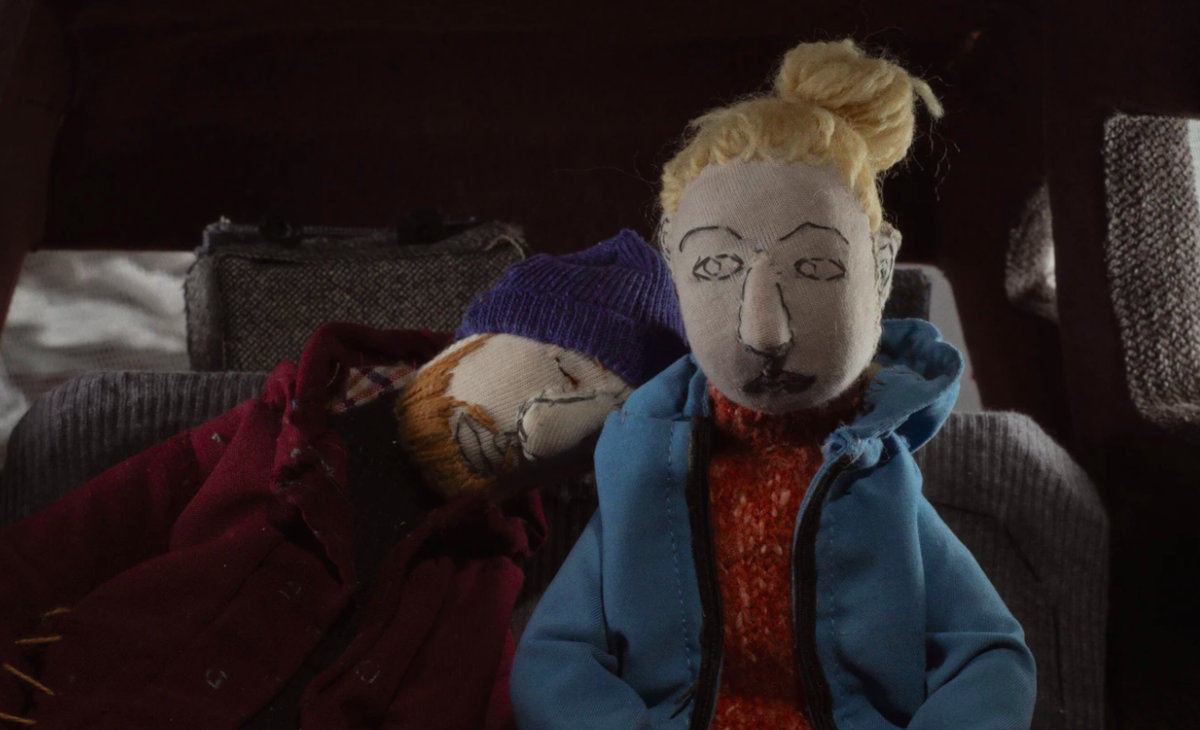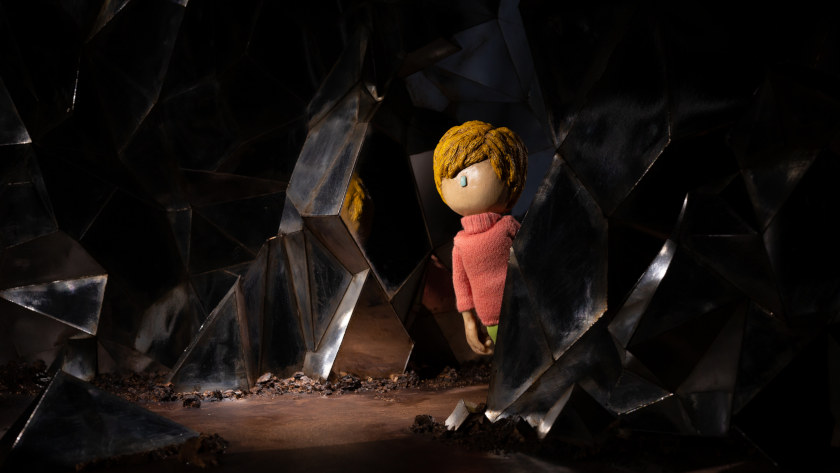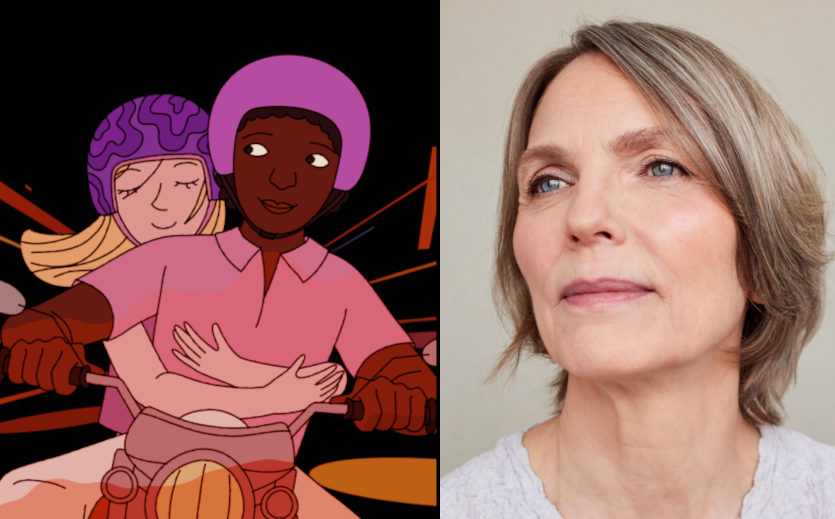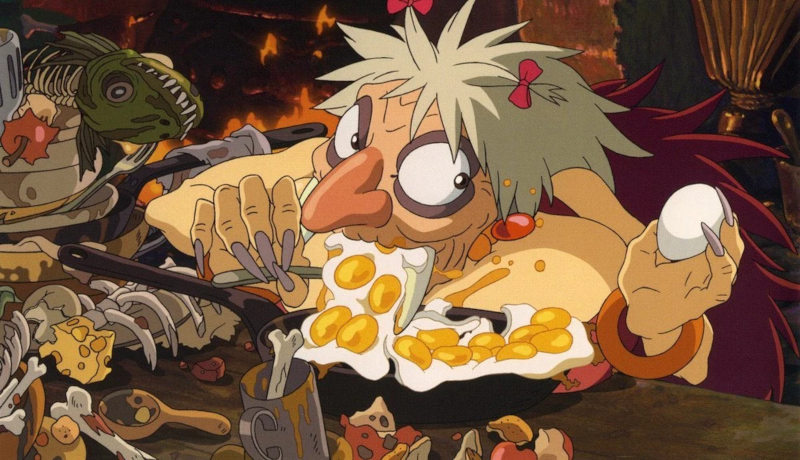'Hypersensitive' NFB Animation Short at Cannes 2025 : Interview with Martine Frossard
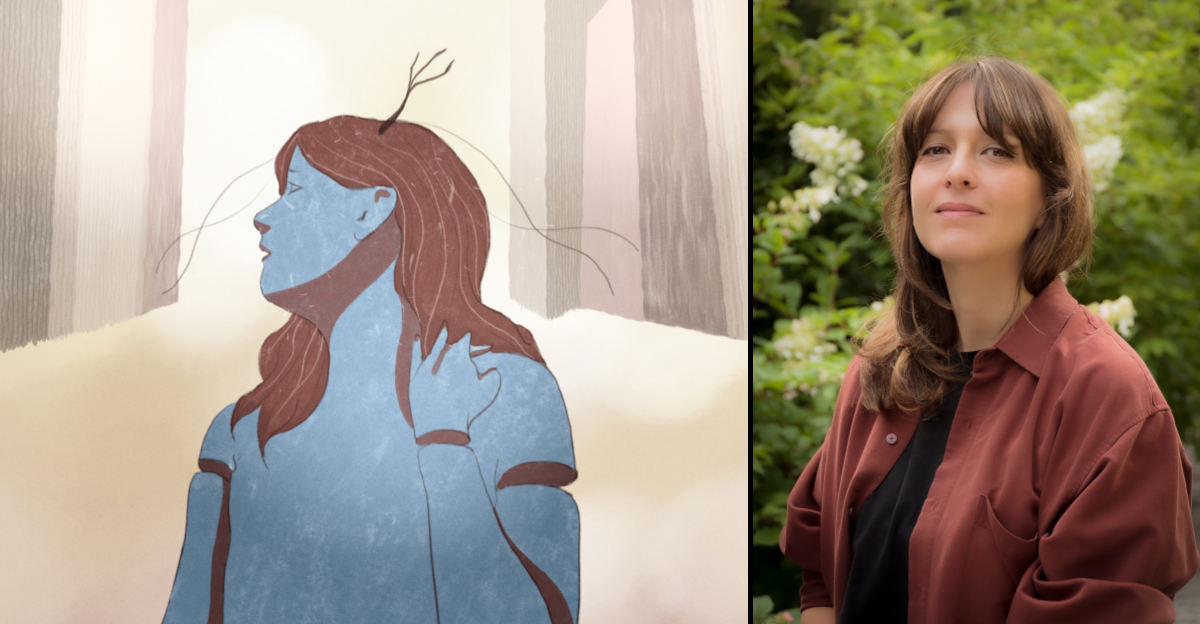
The new film by Montreal-based multi-disciplinary artist and director Martine Frossard, made in collaboration with the National Film Board of Canada, explores the troubled experiences of a sensitive young woman, who finds herself at a key crossroads in her life as she is growing up. The story follows the girl as she struggles to navigate how she fits into adult society and is forced to make choices about her own identity in defiance of the oppressive constraints of ‘normal’ urban society.
Martine Frossard talked to Zippy Frames and Joseph Norman.
ZF: The film’s use of supernatural elements seems to echo certain indigenous belief systems. Were you making specific reference to these?
MF: Yes, I wanted to evoke several Indigenous belief systems, but also a more universal symbolism: the tree as a link between the visible and the invisible, between the material and spiritual worlds, between life and death. The tree-figure is common to almost all traditions: from the Yggdrasil of Norse mythology, to the Tree of Life in the Kabbalah, to the Ceiba among the Maya. They all symbolize the idea of a connecting and unifying vertical axis. I wanted to make this connection between a person’s sensitivity and nature, a mirror of their inner self in an oppressive society.
The choice of the oak as a symbol represented the strength and resilience a person develops as they heal.
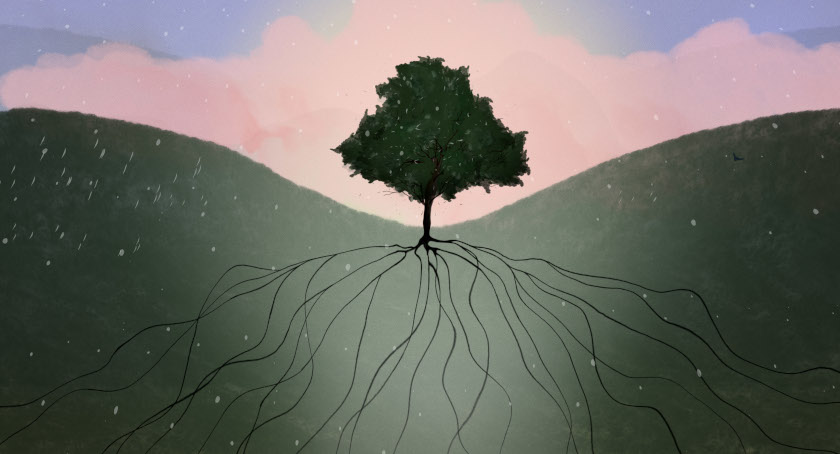
ZF: What kind of message do you want the film to convey?
MF: Most of my personal and professional projects have revolved around similar themes: the search for identity, the gaze of others, the world of perceptions, dreams, the remnants of memory, but also grief, trauma, loss, resilience, the way we fragment and then rebuild ourselves through trials and challenges. Hypersensitive is a film about vulnerability and resilience. I wanted to talk about our society’s need for people to quickly “get better” after experiencing grief. Being sensitive is simply being alive. We need to learn to embrace our discomfort and the richness of our emotions.
ZF: Do you feel that the film is particularly relevant now, in the context of political agendas regarding environmental protection?
MF: Yes, I think the film is very relevant right now, with our ecosystems being catastrophically impoverished and our governments’ rather minimalist—even non-existent—environmental policies. I wanted to highlight the issue of monoculture—how planting only one species of tree weakens the ecosystem. I see it as a clear metaphor for our society: by trying to impose a single model, whether it be economic, social or cultural, we end up smothering our collective wealth. “Normality” is a lie. Diversity is what makes an ecosystem resilient. It’s the same for societies.
It’s through biological, social, cultural and cognitive diversity that we can cope with crises, create and evolve. It is this parallel between nature and society that fuelled my imagination for this film.
ZF: What were your influences in developing the film, in terms of issues such as pollution, the human impact on the environment and societal expectations of workers?
MF: Philosopher Baptiste Morizot believes we are experiencing a crisis of sensitivity; a kind of erosion of what we can feel, perceive, understand and connect with in relation to the living world. We surround ourselves with a thousand distractions, from the most mundane to the most extreme, to keep our emotions alive. We are living in a world where humans have put themselves above nature, without considering its cycles and weaknesses; climate change isn’t just an environmental catastrophe, it’s a symptom of this loss of connection.
In the film, I also wanted to highlight the social expectations placed on the people who participate in this logic of exploitation and disconnection. Productivity and efficiency are valued, often to the detriment of meaning, emotion and listening to oneself and others.
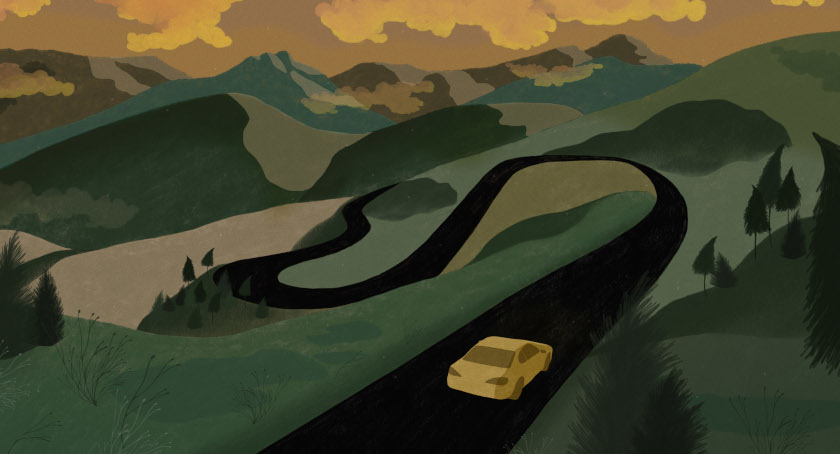
ZF: How was the film funded? What is the funding situation like in Canada?
MF: 'Hypersensitive; was produced and distributed by the National Film Board of Canada (NFB). The NFB is one of the few cultural institutions in Canada with dedicated funding for animated short films—up to 100% of the funding package. NFB programming and productions feature distinctive creative visions, a philosophy established by Norman McLaren, founder of the NFB animation studios. Unlike typical investment funding, the NFB is special in that it supports creators throughout the production process and in implementing their roll-out plan. As a filmmaker, I had the opportunity to make my film on site, in their studio, which allowed me to rub shoulders with a community of creators and to fully immerse myself in this incredibly inspiring artistic environment. The opportunity to be surrounded by amazing filmmakers like Claude Cloutier, Michèle Lemieux and Diane Obomsawin and to be supported by such a close-knit team doesn’t come around every day. There aren’t many organizations like the NFB in the world, and I count myself extremely lucky to have had this creative experience.
Watch the 'Hypersensitive' trailer:
ZF: What were the main challenges in making the film?
MF: The film was genuinely a form of art therapy for me. In the fall of 2023, I began experiencing major physical upheavals for no apparent reason, right in the middle of production. Though it wasn’t my initial goal, working on the film was profoundly destabilizing. I experienced the film physically, drawing my supressed memories image by image. I wanted to evoke rather than recreate, so that I could maintain a certain distance and protect myself. I had to sublimate these memories in the film. The hardest thing was to revisit the parts of myself that developed the defence mechanisms that allowed me to survive. I experienced a state of derealization while I was trying to make a film.
Your perception of time changes when you make an animated film. Drawing frames image by image slows time down, but the world around you keeps going just as quickly and intensely as ever. Afterward, it’s like your body is trying to catch up from that temporal shift.
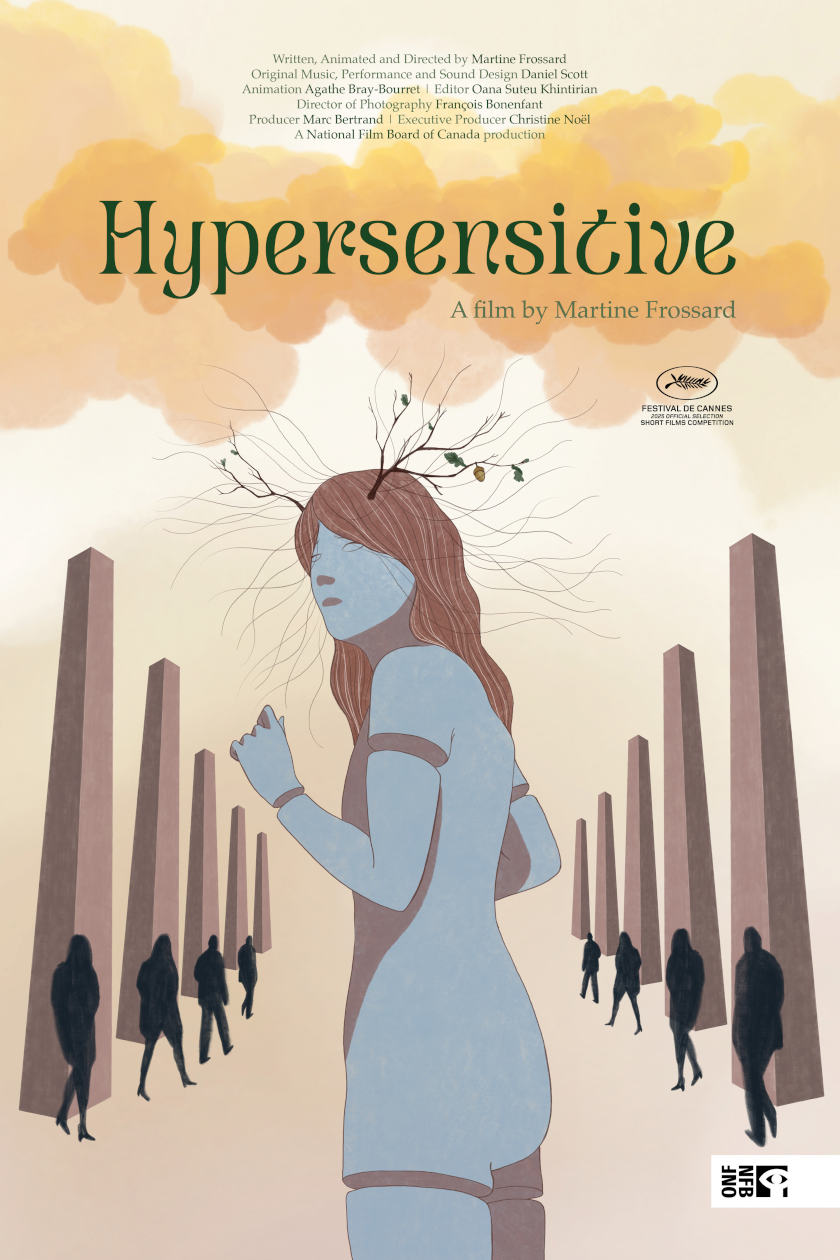
'Ηypersensitive' by Martine Frossard is part of the Official Selection – Short Film Competition at the 2025 Cannes Film Festival, which runs from May 13 to 24.




